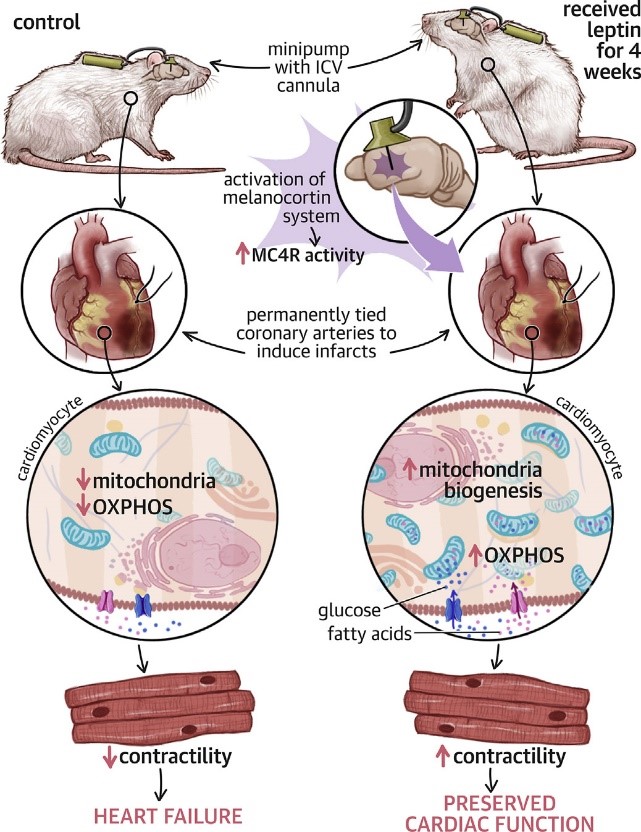Research Spotlight
Cardiac protective mechanisms of melanocortin system activation
Heart failure (HF) is a main contributor to the high mortality rate from cardiovascular diseases in the United States and worldwide. HF drastically worsens quality of life and is a leading cause of hospitalization in adults over 65 years of age. The prognosis for patients with severe HF is poor, with a 50% mortality over a 5-year period. Many patients with HF have reduced left ventricle (LV) pumping ability, often caused by blockage of the coronary arteries (myocardial infarction, MI).
Recent collaborative studies from Dr. da Silva’s and Dr. do Carmo’s laboratories showed that activation of the brain leptin-melanocortin system pathway markedly improves cardiac function and protects the heart against progressive HF after MI. These studies also demonstrated that activation of melanocortin-4 receptors (MC4R) is required for stimulation of the leptin-melanocortin system axis to evoke this cardioprotective action. In addition, these studies highlighted an important brain-mediated effect of the leptin-MC4R pathway to improve cardiac substrate oxidation and cardiomyocyte mitochondrial function leading to better cardiac contractility in healthy areas of the heart away from the infarct that were able to compensate, at least in part, the lack of contractility in the infarcted region.
Drs. da Silva and do Carmo were recently awarded an NIH R01 grant to investigate the mechanisms responsible for the improvement in cardiac function and attenuation of HF following an MI event when the brain leptin-MC4R axis is activated. Another important goal of this R01 is to test whether stimulation of MC4R, using an agonist recently approved by the FDA for the treatment of some genetic forms of obesity, is effective for protecting the heart against MI-induced progressive HF and to test whether this approach is of significant translational potential as new therapy for HF, MI and related pathologies.

For more information, please click on the links below:
https://pubmed.ncbi.nlm.nih.gov/33532666/
https://pubmed.ncbi.nlm.nih.gov/36300667/


